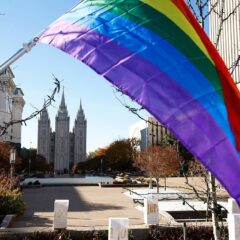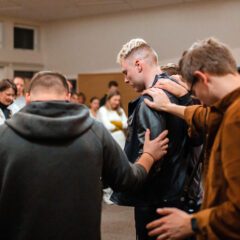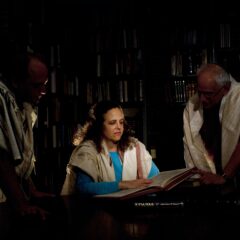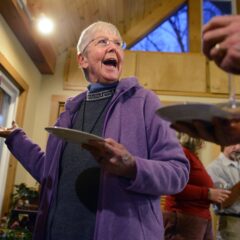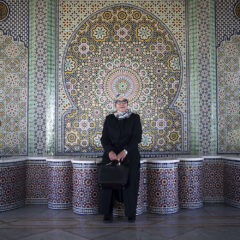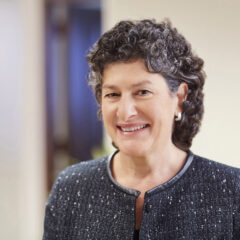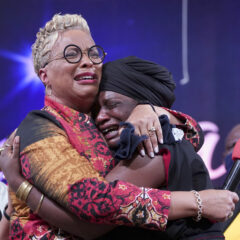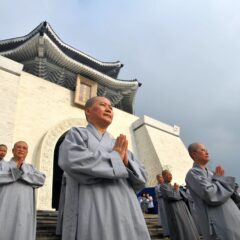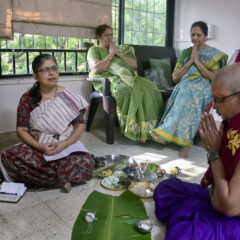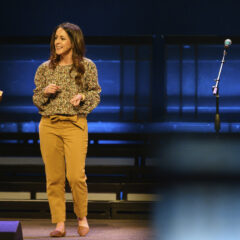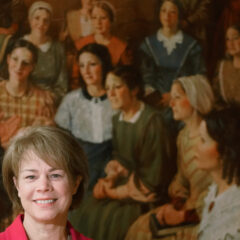
About Series
Around the world, women have been making notable advances in many realms, serving as heads of government, leading corporations and universities. Yet in several major religious denominations, women are barred or limited from serving as clergy and excluded from the uppermost leadership roles.
Nonetheless, hundreds of millions of women are devoted to these male-led faiths, and some — often breaking barriers along the way — have found leadership roles they can play.
How are women forging new pathways in faith leadership throughout religions that traditionally have been patriarchal? Change comes slowly but there has been a palpable shift.
Religion News Service, The Associated Press and The Conversation have teamed up to produce a series of stories portraying some of these women and the faiths they embrace.
Partners

The Associated Press is an independent global news organization dedicated to factual reporting. Founded in 1846, AP today remains the most trusted source of fast, accurate, unbiased news in all formats and the essential provider of the technology and services vital to the news business.

The Conversation is a nonprofit, independent news organization dedicated to unlocking the knowledge of experts for the public good. We publish trustworthy and informative articles written by academic experts for the general public and edited by our team of journalists.
Other Popular Series
Despite many changes over the years in laws regarding the rights of LGBTQ people, the issue of their inclusion remains a thorny area for religious denominations around the world. Differences over whether to recognize same-sex marriage or ordain LGBTQ people as clergy are even leading to divisions within some faith groups. The Associated Press, Religion News Service and The Conversation have teamed up to produce a series of reported stories and scholar commentary showing the institutional change in some denominations – and also the resistance to it.
While fifteen percent of the global population is disabled, religious communities and spaces around the world are replete with ableist barriers of all kinds, whether it’s a meditative pose that excludes certain bodies, a synagogue’s bimah only accessible by stairs or a Christian hymn that equates blindness with sin. Despite these setbacks, disabled leaders and allies have been advancing accessibility in their theology, worship practices and physical spaces. For many, accessibility isn’t just a matter of morality — it’s a spiritual duty. Religion News Service reported on how disabled and neurodivergent leaders across faith traditions are upending ableist assumptions and changing the religious landscape to be more hospitable to all.
When supporters of former President Donald Trump rallied near the White House on Jan. 6 of last year, a boisterous pocket of young men waving "America First" flags broke into a chant: "Christ is King!" It was one of the first indications that Christian nationalism would be a theme of the Capitol attack later that day, where insurrectionists prayed and waved banners that read “Proud American Christian.”
